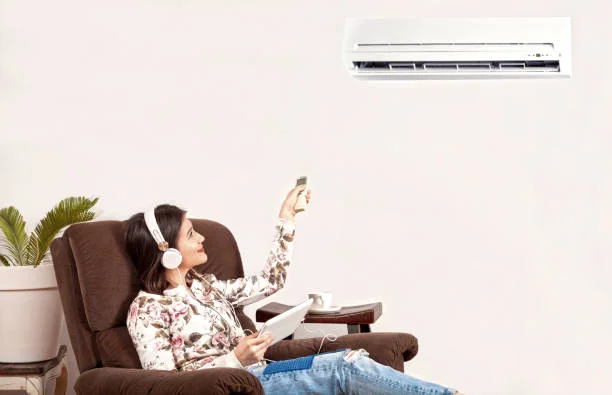Choosing an air conditioner for your home is one of the most critical decisions for year-round comfort and energy efficiency. The right system not only keeps your home cool during hot months but also ensures cost-effective operation and longevity. With so many models and technologies available, homeowners often struggle to determine which one suits their space and needs. Factors such as room size, insulation, budget, and energy efficiency ratings all play critical roles in this decision. Selecting wisely means balancing performance, comfort, and operating costs while considering both installation and long-term maintenance requirements.
Key Considerations for Home Comfort
The first step in selecting the right air conditioner is understanding your household’s cooling needs. Every home has unique characteristics—room size, ceiling height, window placement, and insulation—that influence temperature regulation, notes Best Orlando Property Management solutions. A unit that’s too small won’t adequately cool your space, while one that’s too large will cycle on and off frequently, wasting energy and wearing down components faster. Assessing total square footage and calculating the appropriate cooling capacity ensures efficiency and consistent comfort. Energy ratings such as the SEER (Seasonal Energy Efficiency Ratio) help identify systems that perform well while keeping utility costs manageable. Paying attention to these details early prevents costly mistakes later and ensures your air conditioning system operates effectively for years to come.
Comparing Different Types of Air Conditioners
Several types of air conditioning systems are available, each designed for specific needs and environments. Central air conditioners are ideal for cooling entire homes through duct systems, offering consistent temperature control and improved air quality. Ductless mini-split systems are perfect for homes without existing ductwork or for individual rooms, providing flexibility and zoned cooling. Window and portable units serve smaller spaces or apartments, offering affordable, temporary solutions. Understanding how each type functions helps match your preferences with your home’s structure and layout. Consulting with professionals like Semper Fi Heating and Cooling can also help determine which system is most suitable for your home’s size and insulation quality. Beyond system type, consider installation costs, maintenance requirements, and noise levels, as these factors significantly impact comfort and satisfaction over time.
Energy Efficiency and Long-Term Savings
Modern air conditioners are designed to provide powerful cooling while consuming less electricity. Energy-efficient models not only reduce monthly utility bills but also minimize your home’s environmental footprint. Features like programmable thermostats, variable-speed fans, and inverter technology allow systems to adjust output precisely to maintain steady indoor temperatures. Although high-efficiency units may cost more initially, the long-term savings in energy consumption and maintenance often outweigh the upfront expense. When comparing options, it’s worth checking for Energy Star certifications and advanced energy-saving features. These indicate compliance with strict efficiency standards and improved durability. Homeowners who invest in efficient systems also benefit from quieter operation, better humidity control, and consistent comfort even during extreme temperatures. Selecting an energy-efficient air conditioner is not only a wise financial choice but also a step toward sustainable living.
Matching Cooling Capacity to Room Size
Choosing an air conditioner with the correct cooling capacity is crucial for comfort and performance. Cooling capacity is measured in BTUs (British Thermal Units), which indicates the amount of heat the system can remove from the air per hour. A higher BTU rating doesn’t always mean better performance—an oversized unit can cool too quickly without properly dehumidifying, leading to discomfort and energy waste. Undersized systems, on the other hand, struggle to maintain target temperatures, running continuously and increasing wear. Calculating the correct capacity based on room dimensions and insulation ensures efficient operation and balanced airflow. Professional installers use detailed load calculations that factor in sunlight exposure, ceiling height, and ventilation. This precise sizing process prevents inefficiencies, reduces operating costs, and enhances comfort, making the home environment more pleasant year-round.
Installation and Placement Considerations
Proper installation is just as important as selecting the right unit. Even the most advanced air conditioner can underperform if poorly installed. Placement affects airflow, noise levels, and overall cooling performance. Outdoor units should be positioned in shaded, well-ventilated areas to prevent overheating, while indoor vents must remain unobstructed for optimal circulation. Ductwork must be adequately sealed to avoid energy loss and uneven cooling. Engaging a qualified HVAC technician ensures that every part of the system functions harmoniously, from refrigerant levels to electrical connections. A professional installation also includes testing for leaks, calibrating the thermostat, and confirming the system’s efficiency. By prioritizing quality installation, homeowners protect their investment and prevent future repair issues. Well-installed systems operate quietly, maintain consistent temperatures, and perform reliably under heavy summer loads, providing peace of mind and lasting comfort.
Maintenance and System Longevity
Even the most efficient air conditioner requires regular care to maintain its performance. Filters should be cleaned or replaced frequently to ensure unobstructed airflow and prevent dust buildup that can reduce cooling efficiency. Annual maintenance by a certified technician includes checking refrigerant levels, inspecting coils, and cleaning condenser units. Regular servicing not only keeps the system running smoothly but also identifies minor issues before they escalate into costly repairs. Ignoring maintenance can lead to reduced efficiency, higher utility bills, and a shortened lifespan for the unit. Homeowners who establish a routine maintenance schedule enjoy better air quality, quieter operation, and dependable performance throughout each season. With consistent upkeep, air conditioners can last well beyond their expected service life, saving money and enhancing comfort for years to come.
Balancing Cost, Comfort, and Quality
Finding the right balance between upfront cost and long-term benefits is key when choosing an air conditioner. While cheaper models may seem attractive, they often lack durability and efficiency features that reduce expenses over time. High-quality units, though initially more expensive, deliver superior comfort and require fewer repairs. It’s also important to consider warranty coverage, as this provides protection against manufacturing defects and helps manage future maintenance costs. Comparing quotes from reputable HVAC providers ensures fair pricing without compromising performance. Long-term value often comes from systems that combine efficiency, reliability, and easy maintenance. Investing thoughtfully in your cooling system provides years of consistent performance, steady indoor temperatures, and financial savings. The right air conditioner becomes more than just a household appliance—it’s a long-term investment in comfort and quality of life.
Selecting the right air conditioner for your home requires thoughtful consideration of size, efficiency, installation, and maintenance. The ideal system balances comfort with energy savings, providing reliable cooling without inflating monthly costs. Whether opting for central air, ductless systems, or portable units, understanding how each fits your lifestyle ensures lasting satisfaction. Professional installation and consistent maintenance further enhance performance and longevity. By prioritizing comfort, efficiency, and long-term reliability, homeowners can enjoy a calm, welcoming environment year-round. A well-chosen air conditioner not only enhances indoor comfort but also contributes to a more sustainable, cost-effective home experience for many years to come.






